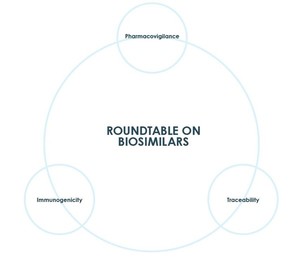A Canadian breast cancer advocacy group collected insights from patients and medical oncologists regarding the use of biosimilar treatments.
Biosimilars have been available in Canada since 2009 [1]. An increasing number of biosimilars are likely to be approved for use in cancer treatment in the near future, in particular for breast cancer as patents for breast cancer treatments are among the first to expire. The Canadian Breast Cancer Network (CBCN) conducted two virtual roundtables, one with seven breast cancer patients and one with six oncologists to explore key considerations regarding the use of biosimilars. The results are discussed in the white paper, Breast Cancer & Biosimilars Recommendations on Use, Implementation and Patient Communications.
Patient perspectives
Key issues arising from discussions with patients include:
• Lack of confidence in biosimilars. There was a general feeling of distrust in biosimilars, partly due to their name. The awareness that biosimilars are similar to the originator biologicals rather than identical raised concerns that biosimilars were a ‘second-class’ treatment.
• Treatment efficacy and side effects. Patients felt that potentially fatal diseases should be subject to a more stringent review process, and lost confidence over the lack of original clinical research for biologicals. The group had concerns about the side effects arising from switching, and about the extrapolation of data used in the approval process for a biosimilar.
• Communication with patients. Patients felt strongly that they should be kept informed about their treatment. Anxiety levels were raised considerably at the thought of being switched to a biosimilar, although patients claimed that they would follow the advice of their oncologist.
• Need for guiding principles for the use of biosimilars in breast cancer treatment. Patients felt that treatment of breast cancer with biosimilars requires consideration of parameters including type of breast cancer, stage, whether the cancer is recurrent, and age of the patient. Patients were unanimously opposed to the idea of interchangeability for biosimilars.
• Application of cost savings. Patients hoped that savings associated with use of biosimilars would be invested into breast cancer research or used to increase access to existing treatments.
Physician perspectives
Key issues arising from discussions with physicians include:
• Experience and comfort in use. Physicians had different levels of awareness about biosimilars and their use, including their place in breast cancer treatment. Some physicians were not comfortable with extrapolating data from the metastatic setting to the curative one.
• Implementation. Physicians felt strongly about a number of issues, including opposition to switching; using monitoring or post-marketing surveillance of biosimilars to increase industry confidence; the importance of naming conventions and computer coding for pharmacovigilance; and biosimilar manufacturers creating patient support programmes.
• Communication with patients. There was considerable debate among the oncologists around how much and what to tell patients about prescribing a biosimilar. The physicians agreed that until biosimilars are a ‘standard of care’ their use should be communicated to patients.
• Cost implications. Physicians were more focused on long-term savings than short-term ones, noting that savings should not be used to guide treatment decisions.
Biosimilar manufacturers are taking steps to support patients using biosimilars. Biosimilars Canada, an association representing Canada’s biosimilar manufacturers, plans to launch a patient support platform in 2019 that can be customized to meet the individual needs of the therapy, the biosimilar sponsor and payers [2].
Related article
Recommendations published by Canadian breast cancer advocacy group
Reference
1. GaBI Online - Generics and Biosimilars Initiative. Biosimilars approved in Canada [www.gabionline.net]. Mol, Belgium: Pro Pharma Communications International; [cited 2019 May 10]. Available from: www.gabionline.net/Biosimilars/General/Biosimilars-approved-in-Canada
2. GaBI Online - Generics and Biosimilars Initiative. Biosimilars makers in Canada to launch patient support programme [www.gabionline.net]. Mol, Belgium: Pro Pharma Communications International; [cited 2019 May 10]. Available from: www.gabionline.net/Biosimilars/General/Biosimilars-makers-in-Canada-to-launch-patient-support-programme
Permission granted to reproduce for personal and non-commercial use only. All other reproduction, copy or reprinting of all or part of any ‘Content’ found on this website is strictly prohibited without the prior consent of the publisher. Contact the publisher to obtain permission before redistributing.
Copyright – Unless otherwise stated all contents of this website are © 2019 Pro Pharma Communications International. All Rights Reserved.








 0
0











Post your comment